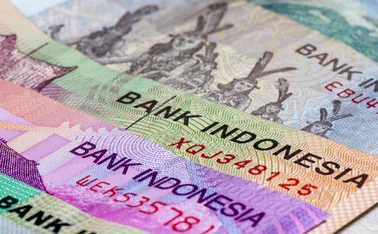
A bumper harvest on the Silk Road


The Silk Road Fund was established in 2014 as part of the Belt and Road Initiative (BRI); its participation in BRI construction is harvesting substantial fruit. It adopts international, market-oriented and professional operations through a focus on medium- and long-term equity investments, and has contributed to the successful implementation of a series of key projects.
Upholding the diversified investment principle, the Silk Road Fund has so far signed 48 agreements, totalling US$11.7 billion and CNY43.8 billion, for projects including ports, airports, motorways, electricity, new energy, food and other industries worldwide. Direct investment and equity investment were the focus of the fund, while capital was also injected through funds and joint investment platforms to financial products in industries such as medical and healthcare, life science, high-tech and industry chains.

These projects have supported enterprises at various stages of development, and produced social benefits and financial returns for partners as well as local people. These strategic investments secure the fund’s financial sustainability, and contribute to the establishment of global connectivity and partnership.
Green innovation
Through its investments, the Silk Road Fund intends to uphold the BRI’s philosophy of innovative, co-ordinated, green and open-share investment in the following ways:
By improving people’s livelihoods through economic recovery
The Silk Road Fund has invested in developed and developing economies in Europe, Asia, Latin America and Africa. Due to adjustments in international political and economic patterns and the industrial chain, regional trade investment and financing arrangements have shifted in recent years. The Covid-19 pandemic will also exacerbate the existing development gap and governance structure between economies. This poses new challenges to the fund’s capacity for and judgement of investment, and targeted investment strategies for different countries and regions will need to be formulated.
New infrastructure and digital economy
The pandemic has adversely affected all industries, except those in the digital arena. While vast scope for investment remains in the empowerment and upgrading of traditional infrastructure and economic sectors, the rapid development of the digital economy is notable. Its success could inspire all investors to seek opportunities in BRI countries. The Silk Road Fund plans to partner with leading enterprises in these areas to enhance talent and intellectual achievement, and form new investment strategies, thus contributing to the expansion and improvement of connectivity in BRI development.
Through opportunities brought about by China’s ‘dual circulation’ strategy
This was proposed by President Xi Jinping regarding green development, including climate change action and renewable energy. Since its inception, the Silk Road Fund has been committed to optimising industrial chains. It has made a series of successful investments to promote China’s high-quality production capacity in ‘Going Out’, and introduced advanced foreign technologies into China.
In the future, more opportunities will derive from the reinforcement of domestic and international targets, and demand for renewable energy investment to take action on climate change. Developed countries have clear goals and plans for new and renewable energy, and the reduction of carbon emissions. While financial pressure caused by the pandemic may force them to adjust their plans, it will, in turn, create opportunities for international capital and enterprises in related industries. As an international platform, the International Finance Forum can, on the one hand, collect information about the specific needs and fiscal policies of different countries from its global membership and, on the other, connect Chinese enterprise with abundant capital, production capacity and advanced technologies, thereby facilitating win-win co-operation in these sectors.
The Silk Road Fund has so far signed 48 agreements … for projects including ports, airports, motorways, electricity, new energy, food and other industries worldwide
Through overseas renminbi investment
Amid the emergence of deglobalisation in recent years, and the constant adjustment of the international political and economic landscape, regulatory policies are changing worldwide. Sanctions – whether in the financial or economic sector – are frequently imposed in the name of national security. Overseas investment thus has a non-conventional risk, which reminds investors to stay away from risky currencies, besides conventional risks such as remittance and exchange rates. The renminbi has gained increasing advantages in overseas investment. China – the world’s second-largest economy and with an optimistic post-pandemic economic outlook – has become the largest trading partner and investment source for many countries. At the same time, the Chinese government adheres to comprehensive reform and opening-up, and is committed to the goal of building a future centred on lasting peace, security, prosperity, inclusiveness and green development. This builds a solid economic foundation and favourable conditions to conduct renminbi-based cross-border transactions. It is believed renminbi-based cross-border investment can reduce conventional and non-conventional risks. The Silk Road Fund, through active exploration and innovation, has now implemented seven projects with renminbi-based overseas investment of CNY43.8 billion, covering equity, loans and convertible bonds.
Through capacity building and the innovation of enterprise
In a speech at the celebration of the 30th anniversary of development and opening-up in the Pudong district of Shanghai, President Xi promoted institutional opening-up. All related actors must establish high-level and high-quality institutional and policy frameworks to further integrate into the international community. This should become an important part of BRI construction and a consensus of BRI international practices. In this way, the initiative will serve more than development, but also act as a platform for international policy co-ordination, and for China’s participation in and leadership of global governance.
Only users who have a paid subscription or are part of a corporate subscription are able to print or copy content.
To access these options, along with all other subscription benefits, please contact info@centralbanking.com or view our subscription options here: http://subscriptions.centralbanking.com/subscribe
You are currently unable to print this content. Please contact info@centralbanking.com to find out more.
You are currently unable to copy this content. Please contact info@centralbanking.com to find out more.
Copyright Infopro Digital Limited. All rights reserved.
As outlined in our terms and conditions, https://www.infopro-digital.com/terms-and-conditions/subscriptions/ (point 2.4), printing is limited to a single copy.
If you would like to purchase additional rights please email info@centralbanking.com
Copyright Infopro Digital Limited. All rights reserved.
You may share this content using our article tools. As outlined in our terms and conditions, https://www.infopro-digital.com/terms-and-conditions/subscriptions/ (clause 2.4), an Authorised User may only make one copy of the materials for their own personal use. You must also comply with the restrictions in clause 2.5.
If you would like to purchase additional rights please email info@centralbanking.com







